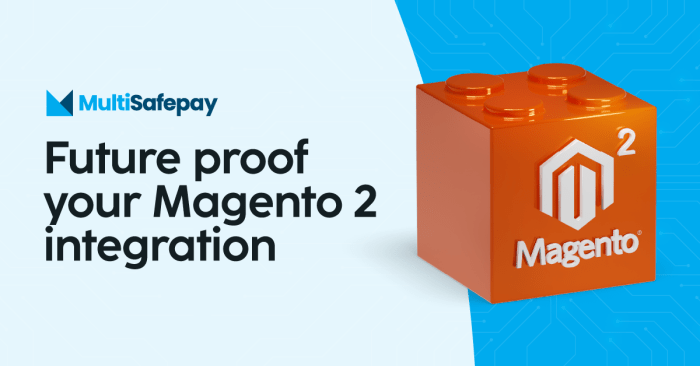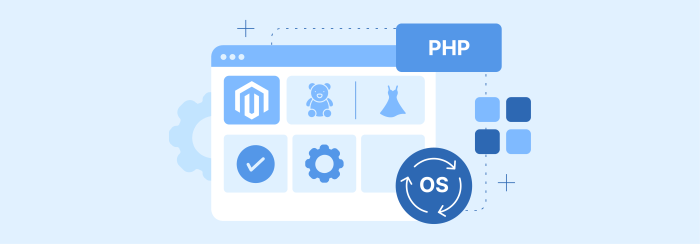Future-Proof Your Store with Magento 2 Developers: A Comprehensive Guide

Future-Proof Your Store with Magento 2 Developers sets the stage for this enthralling narrative, offering readers a glimpse into a story that is rich in detail and brimming with originality. As e-commerce continues to evolve, it's crucial to stay ahead of the curve, and Magento 2 developers can help you achieve just that.
In this guide, we'll delve into the key features of Magento 2, the importance of hiring skilled developers, customization options, and security measures to safeguard your online store. Let's explore how Magento 2 can future-proof your e-commerce business.
Why Choose Magento 2 for Future-Proofing Your Store?

Magento 2 is a popular e-commerce platform known for its robust features and flexibility, making it an ideal choice for future-proofing your online store.
Key Features of Magento 2 for E-Commerce
- Advanced search capabilities for enhanced user experience
- Mobile optimization for reaching a wider audience
- Flexible product catalog management tools
- Seamless third-party integrations for added functionalities
- Built-in tools for better visibility in search engines
Scalability and Performance with Magento 2
Magento 2 offers scalability and performance enhancements to handle growing traffic and sales volume efficiently.
- Improved caching mechanisms for faster page load times
- Support for cloud hosting for easy scalability
- Enhanced database performance for handling large amounts of data
Successful Businesses Using Magento 2
Many well-known brands have chosen Magento 2 for their e-commerce needs, showcasing its effectiveness in powering successful online stores.
- Nike - Utilizes Magento 2 for its online store, offering a seamless shopping experience
- Warby Parker - Relies on Magento 2 for its e-commerce operations, showcasing the platform's flexibility
- Olympus - Uses Magento 2 for its online store, highlighting the platform's robust features
Hiring Magento 2 Developers
When looking to hire Magento 2 developers, it is essential to find individuals with the right skills and expertise to ensure the success of your project. Experience with Magento 2 projects plays a crucial role in determining the developer's capability to handle the complexities of the platform.
Evaluating developer portfolios can provide valuable insights into their previous work and the quality of their solutions.
Essential Skills and Expertise
- Proficiency in PHP: Magento 2 is built on PHP, so developers must have a strong command of this programming language.
- Magento 2 Certification: Look for developers who are Magento 2 certified, as this demonstrates their in-depth knowledge of the platform.
- Experience with Magento 2 Extensions: Developers should be familiar with customizing and integrating extensions to enhance the functionality of your store.
- Knowledge of Frontend Technologies: Understanding of HTML, CSS, and JavaScript is crucial for creating a seamless user experience on your Magento 2 store.
Importance of Experience with Magento 2 Projects
- Handling Complexities: Experienced developers are better equipped to navigate the complexities of Magento 2 and troubleshoot issues effectively.
- Optimized Performance: Developers with prior experience can optimize your store's performance and ensure smooth operation.
- Best Practices: Experienced developers follow best practices in Magento 2 development, resulting in efficient and scalable solutions.
Tips on Evaluating Developer Portfolios
- Review Past Projects: Look at the developer's previous work to assess the quality of their solutions and see if they align with your requirements.
- Client Testimonials: Check for client testimonials or reviews to gauge the developer's reputation and reliability.
- Code Samples: Request code samples to evaluate the developer's coding standards, readability, and efficiency.
- Communication Skills: Ensure the developer has good communication skills to effectively collaborate and understand your project needs.
Customization and Integration with Magento 2

Magento 2 offers a high level of flexibility when it comes to customization, allowing store owners to tailor their online stores to meet specific business needs and branding requirements. This flexibility makes Magento 2 a popular choice for businesses looking to create a unique and personalized online shopping experience for their customers.
Customization Options in Magento 2
- Custom Themes: Magento 2 allows developers to create custom themes that reflect the brand identity of the store. This includes customizing the layout, colors, fonts, and other design elements to create a visually appealing storefront.
- Custom Extensions: With Magento 2, developers can build custom extensions to add new functionality to the store. This could include features like advanced product search, personalized recommendations, or integration with third-party services.
- Custom Product Options: Magento 2 offers the ability to create custom product options, such as size, color, or material, allowing store owners to offer a wide range of product variations to their customers.
Integrating Third-Party Extensions with Magento 2
- Magento Marketplace: Store owners can easily browse and install third-party extensions from the Magento Marketplace, which offers a wide range of extensions to enhance the functionality of the store.
- Custom Integration: In cases where a specific functionality is not available in existing extensions, Magento 2 developers can create custom integrations with third-party services or systems to meet the unique requirements of the business.
Security Measures for Your Magento 2 Store
Ensuring the security of your e-commerce store is paramount to protect sensitive customer data and maintain trust. Magento 2 provides robust security features to help safeguard your online business.
Security Features Offered by Magento 2
- Secure Payment Gateways: Magento 2 supports various payment gateways that comply with PCI Data Security Standards to securely process transactions.
- Two-Factor Authentication: Enhance login security by implementing two-factor authentication for admin accounts to prevent unauthorized access.
- SSL Encryption: Utilize SSL certificates to encrypt data transmitted between the server and the user's browser, ensuring secure communication.
- Regular Security Updates: Magento 2 releases regular security patches and updates to address vulnerabilities and strengthen the platform's security.
Tips for Enhancing the Security of Your Magento 2 Store
- Use Strong Passwords: Encourage users to create strong, unique passwords and implement password policies to enhance account security.
- Enable Web Application Firewall: Implement a web application firewall to protect your store from malicious attacks and unauthorized access.
- Regular Security Audits: Conduct regular security audits to identify and address potential vulnerabilities in your Magento 2 store.
- Restrict Admin Access: Limit access to sensitive areas of your store by assigning permissions based on roles to prevent unauthorized changes.
Last Point

In conclusion, Future-Proof Your Store with Magento 2 Developers is not just a trend but a necessity in the ever-changing landscape of online retail. By leveraging the power of Magento 2 and working with experienced developers, you can ensure the longevity and success of your online store.
Stay ahead of the competition and future-proof your business today.
Expert Answers
What are the key features of Magento 2 for e-commerce?
Magento 2 offers enhanced performance, scalability, mobile responsiveness, advanced search capabilities, and improved checkout processes.
How can Magento 2 help in scalability and performance?
Magento 2 provides optimized performance and scalability through features like full-page caching, improved indexing, and better database management.
Why is security important for e-commerce stores?
Security is crucial for e-commerce stores to protect customer data, prevent data breaches, and maintain trust with customers.
What are some security features offered by Magento 2?
Magento 2 provides features like secure payment gateways, data encryption, and regular security updates to protect online stores from cyber threats.

